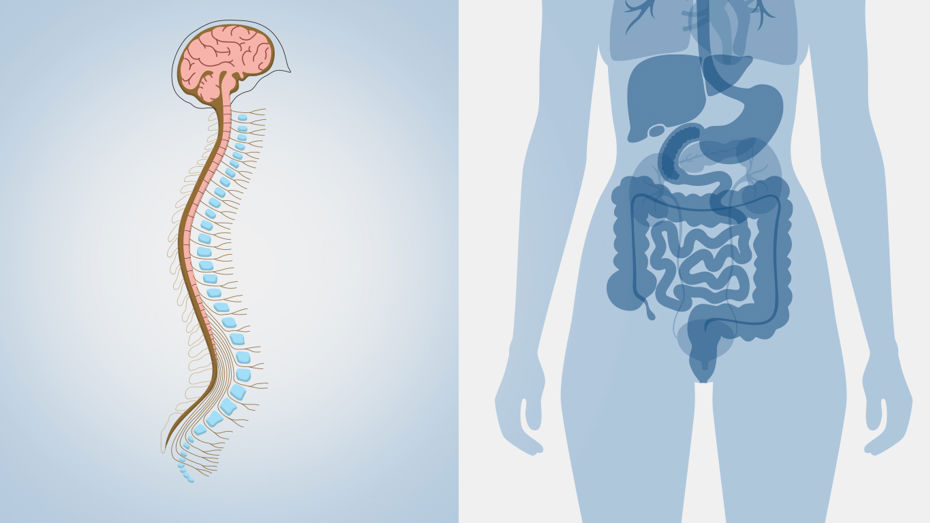
Bowel dysfunction is a condition that can have many different causes. There could be a neurological disease in the spine/brain pathways which affects the bowel control, or an obstruction, and for some individuals there are no underlying medical reasons why the bowel does not function.
There are also psychological reasons for some bowel problems. Regardless of the reasons for bowel dysfunction, the impact on quality of life is immense. People with symptoms of bowel dysfunction often socially restrict themselves or isolate themselves completely, they have little or no self-confidence, close relationships may be impaired, the ability to work can be difficult, and the financial complications associated with medication, or costs of containment may all be a huge obstacle for daily living.
Neurogenic bowel dysfunction (NBD)
NBD is the term used to describe dysfunction of the colon due to disruption of nerve signals causes for example disrupt peristalsis and urge signals. This results in the bowel becoming distended and transit time for the stools to move along the bowel slowed down considerably. The longer the stools remain in the bowel the more water is reabsorbed from the stool which leaves the matter harder and even more difficult to pass. The frequency of evacuation becomes very slow and unpredictable. When evacuation does occur, it can be very painful and may take hours and hours, with accompanying sensations of incomplete emptying and soiling. For some individuals, their bowels spontaneously empty without little warning.
Examples of conditions that may be affected by NBDs are:
- Spinal cord injury
- Traumatic spinal cord injury
- Non-traumatic spinal cord injury such as Spina Bifida - Parkinson’s disease
- Multiple Sclerosis
- After stroke
Functional bowel disorders (FBD)
Bowel disorders without any morphological, metabolic, or neurologic cause are called functional bowel disorders. There are other definitions in the literature but generally, an FBD is diagnosed after full investigations which fail to identify an underlying organic cause.
Examples of FBDs are:
- Chronic constipation (or functional constipation)
- Fecal incontinence
- Slow transit constipation (STC)
Other causes of bowel dysfunction
Organic causes may vary from congenital conditions like Hirschsprung disease and anorectal malformations, to metabolic to endocrine disorders, pelvic floor dysfunctions, and post-surgical conditions. The use of certain medications may also affect bowel function.
The differences between dysfunctions are the cause of the symptoms, not the symptoms.
Symptoms of bowel dysfunction may include:
- Abdominal pain
- Abdominal distension
- Early satiety
- Loss of voluntary control over defecation (fecal incontinence)
- Difficulty with evacuation (constipation)
- Associated neurologic bladder symptoms